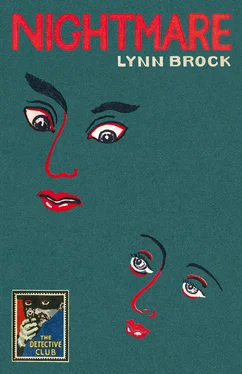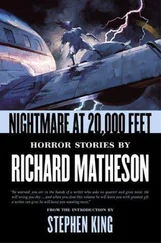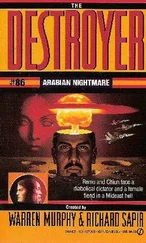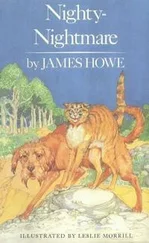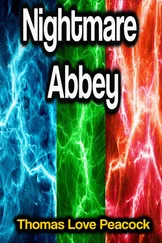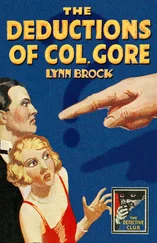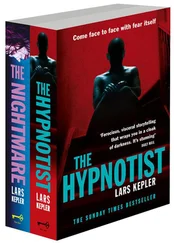He decided upon a knot in the under-surface of the Prossips’ match-boarding. Just there. A line through that knot—say, from the centre of his own landing—ought to pass through the near side of the gramophone. If a hand was restarting the needle, and if a face was bent over it as it did so, the line would just about catch them both—some part of both of them. It would have to be a little oblique, of course—yes, starting from the centre of his own landing—that would be just about right …
Wasn’t there something in the agreement about the landlord being able to take steps to recover possession of the premises if the tenant violated any of the terms of the agreement?
One would be able to time it exactly, too. The footsteps would come hurrying—stop—count one—and then the face would be bent over the record—the bullet would rush up at it out of the record, smash into it, stop its sniggering and grinning.
Perfectly simple. The only difficulty was that the bullet might strike the motor of the gramophone and get deflected, or stopped.
He continued to stand, looking up, calculating absorbedly. One couldn’t possibly do it, of course. The risk would be too great. No one would believe for a moment, knowing of the quarrel with the Prossips, that it had been an accident, though there was , if you came to think of it clearly, no reason why he shouldn’t just happen to examine his old service revolver one day out in the passage of his flat and why it shouldn’t just happen to go off. That sort of thing was always happening …
And, if one could do it safely, of course, it would be so perfectly simple.
Once more the gramophone’s blaring ceased. Once more footsteps hurried to it—stopped. Once more the accursed torment began. Five o’clock? What the devil had he been thinking about—standing there like a fool? Too late to do the floor now.
He began to carry back the things which he had carried out of the kitchen, replacing them exactly in their former positions. Tomorrow or next day they would all have to be carried out again.
It is clear that Mr Knayle was right and that Whalley was taking this silly, childish feud with the Prossips altogether too seriously. The curious thing is that Whalley had been living on a sense of humour for the greater part of twenty years.
IN August, 1918, as he lay in the white, stunning peace of the hospital-ship which was carrying him to England, a matter which for four years had appeared to him of no practical importance whatever began to invest itself with a faint interest. Suppose that rumour at last spoke the truth and that the incredible was to be believed. Suppose that the Boche was finished and that peace was coming some time within the next six months, what was Simon Whalley (Capt., D.S.O.) going to do for the rest of a life which, after all, might continue for a considerable time.
The shrapnel wounds in his head and shoulder were not very serious, he had been told; but it would probably take a year at least to make the shoulder a serviceable one again. It was at all events a possibility that, so far as he was concerned, the War had finished. If it had, what was going to happen him next?
He was then thirty-two years of age. With the exception of some remote Lancashire cousins whom he had never seen and a married sister in the Malay States, he had no living relatives. There no longer existed anywhere in the world for him any place which he could regard as home. He had been called to the Irish Bar a few years before the War, but he had never received a brief—had, even in his student days, regretted that he had committed himself to a legal career—and had now no least intention or desire to resume the old weary, fruitless hauntings of the Dublin Law Library—if there was still such a thing. For that matter he had now no desire to return to Ireland. His parents (his mother had been Irish; his father, retired with a crippled leg and the rank of Major, after Spion Kop, the solitary descendant of an English family which had transferred itself from Lancashire to Co. Meath in the eighteen-fifties) had both died during the War. His brother had been killed in it—a fate which had also overtaken a dismaying number of the contemporaries who had been his more intimate friends both in Meath and in Dublin. Things had changed in Ireland—they were likely, it seemed, to change very greatly. The old days over there were gone—for good. Whatever was going to happen to him, he foresaw, would probably happen to him somewhere else.
Upon his demobilisation he would receive a bounty, he supposed, of two or three hundred pounds. A sum of nearly six thousand pounds stood to his credit in the Bank of Ireland, on deposit. His mother’s few thousands had gone to his sister—his father had died with an overdraft. There was no source from which he could hope to augment his limited capital, save his own abilities. These, upon consideration, appeared so unpromising that, by the time a stretcher carried him on to Dover Pier, he had dismissed all but one of them as quite unreliable.
An English public school had made of him an average public schoolboy, decently educated and decently proficient in games. The University of Dublin had given him an entirely useless Honours Degree in Classics. Apart from his law studies he had received no special training in anything. The world, he had already divined, would shortly be very full of smatterers looking for jobs—and of trained men who would crowd them out of them. There was schoolmastering—but his classics were already half-forgotten and no longer held a spark of interest for him. There were the colonies; but even to the colonies he had no talent or aptitude to offer beyond average health and physique and intelligence, discounted by the fact that he was two years past thirty. But one means of acquiring some more money, reasonably quickly, appeared within his possible reach. He had already written—shortly before the War—a couple of comedies, one successful, one very successful. The most hopeful occupation of his immediate future appeared to be the attempt to write others.
Nearly five years—four of them crowded with the almost entirely physical experiences of the War—now separated him from that brief, completely detached period of his life during which he had been a writer of plays. Looked back to now, it still remained utterly unaccountable, utterly dissociated from the rest of the past—a phenomenon as isolated and self-contained as an attack of measles or a passing interest in chess or wood-engravings. Neither his father’s family nor his mother’s—both had belonged to the small landed gentry class for several generations back—had had any known association with the theatre. His own previous interest in it had always been of the most casual and spasmodic kind, the interest merely of the average theatre-goer who regards it as one means of passing an occasional evening more or less agreeably. Until his twenty-fifth year he had never spoken to any person directly connected with it, never read the text of any play of later date than the eighteenth century, never—with the exception of schoolboy essays—attempted or thought of attempting, literary composition of any sort. The desire to write plays, together with the ability to write them, had both presented themselves to him abruptly at an almost precisely definite moment of a particular night. He could recall the moment quite clearly. He had just then been passing the brightly-lighted entrance of the Shelbourne Hotel and, before he had reached the darkness beyond he had decided that he could write a play and that he would begin to do so before he got into his bed that night.
Читать дальше
